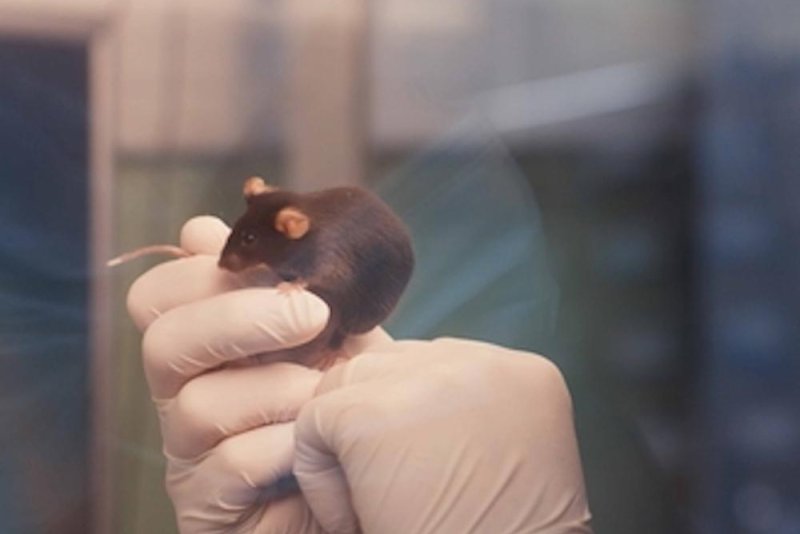Researchers tested more then 3,000 mice -- each with a single gene dialed -- for hearing loss in an effort to locate genes essential to the hearing process. Photo by MRC Harwell
Oct. 12 (UPI) -- A survey of 3,000 mouse genes has revealed 52 previously unidentified genes vital to hearing. Researchers hope the discovery will help scientists better understand hearing loss in humans.
Scientists tested more than 3,000 "knock-out" mice, mice with one of their genes deactivated, for evidence of hearing loss. Each mouse was tested for its ability to pick up on five different frequencies at a range of volumes. If a mouse could not hear the low volumes of two or more frequencies, it was considered to have hearing loss.
The tests revealed 67 genes associated with hearing loss, 52 of which had not previously been identified. It's likely even more genes are essential to hearing, as scientists have so far only tested enough knock-out mice to account for 15 percent of the mouse genome.
In fact, researchers estimate the full genome features 450 genes related to hearing function.
In humans, as many as 400 genetic syndromes involve hearing loss, but little is known about the specific genes responsible for the loss of hearing.
"Importantly, the large number of hearing loss genes identified in this study demonstrates that there are many more genes involved in deafness in mouse and human genomes than we had previously realized," researcher Steve Brown said in a news release.
Brown is the director of the Medical Research Council at Harwell, in England, home to the Mammalian Genetics Unit. He and his colleagues published their genomic analysis this week in the journal Nature Communications.
"Testing these genes in people with hearing loss may help to improve diagnosis and counseling of patients," Brown said. "The next steps will be to determine the role that each of the proteins encoded by these genes has within the auditory system."
Scientists hope further investigation will reveal cellular functions critical to hearing -- processes that can serve as targets for therapy.















